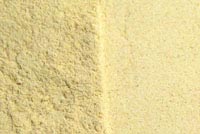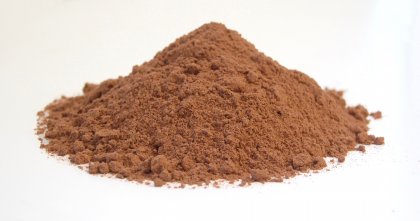
Oat Fiber

Raspberry Fiber

Raspberry Fiber

Oat Fiber

Raspberry Fiber

Raspberry Fiber
Konjac oat Raspberry fiber pasta is made from the mixture of konjac fiber, oat fiber and Raspberry fiber. Konjac oat Raspberry fiber pasta has very low calories, and high in soluble and insoluble fiber. Konjac glucomannan fiber, which are water soluble dietary fiber derived from the konjac root. Raspberry fibre is a fine-grained Raspberry fibre made from the Raspberry pomace generated from the processing of Raspberrys. With the typical flavour and taste Raspberry fiber is a high quality source of soluble and insoluble dietary fiber. Raspberry fiber has many applications as an ingredient in the human food markets. It contains at least 35% dietary fiber, which helps with cancer, diabetes, digestive health, heart health, and weight management. The Raspberry fiber also rich in naturally occurring vitamins, minerals, phytonutrients and antioxidants retained. Raspberry fibers also offer a multitude of product development benefits, such as enhancing mouthfeel, increasing viscosity, providing structure, replacing fat, and retaining moisture.
Health benefits of konjac oat Raspberry fiber pasta
Konjac oat Raspberry fiber pasta also enhance bowel function and to help remove toxic substances from the digestive tract.
Oat fiber is mainly the insoluble fiber (lignin, cellulose and hemicellulose)- it's made from grinding the non-digestible oat hull. When you eat oats fiber it decreases cholesterol absorption in the intestinal tract. Oat fiber is capable of absorbing a lot of liquid and since oat fiber doesn't break down in the digestive track it also helps to prevent constipation by bulking up the stool.
Oats are also rich in a specific type of fiber called beta-glucan. Beta-glucan in konjac oat Raspberry fiber pasta, which is not digested by humans, serves as a valuable substrate for fermentation by bacteria in the colon. Oat fiber might work by blocking the absorption from the gut of substances that contribute to heart disease, high cholesterol, and diabetes.
Konjac oat Raspberry fiber noodles come in a wet form and are pre-packaged in water. Within three main ingredients konjac fiber, oat fiber and Raspberry fiber, konjac oat Raspberry fiber pasta as part of an overall healthy diet. The possible health benefits include reducing the risk of coronary artery disease, lowering levels of cholesterol, and reducing one's risk of colorectal cancer, prevent diabetes, help for losing weight etc.
Health Benefits of Konjac Oat Raspberry Fiber Pasta
Coronary Artery Disease
Eating konjac oat Raspberry fiber noodles reduces cholesterol problem and all types of cardiovascular risk. A study titled published in the American Journal of Lifestyle Medicine, found that eating foods rich in oat may help reduce the risk of coronary heart disease.
Digestion and Obesity
Eating konjac oat Raspberry fiber noodles appears to help reduce hunger and increase feelings of fullness. Researchers suggest potential health effects ranging from improved immune health to reducing risk for obesity and chronic disease.
Weight Management
By replacing higher calorie ingredients, konjac oat Raspberry fiber noodles may help reduce calorie intake; it may also increase satiety. It can be a powerful weight loss tool. Their viscous fiber delays stomach emptying, so you stay full longer and end up eating less.
Blood Cholesterol Reduction
The fiber in konjac oat Raspberry fiber pasta also lowers blood cholesterol and contributes to maintaining healthy blood cholesterol levels within the normal range. Combined with a healthy diet, beta-glucan and glucomannan can help lower blood levels of so-called "bad" cholesterol, diminishing the risk of heart disease.
Prebiotic Benefit
The fiber in konjac oat Raspberry fiber pasta act as a "prebiotic" that encourages the growth of healthy, flourishing populations of beneficial bacteria in the gut.
Relieve Constipation
Glucomannan has been shown to be an effective treatment for constipation. Many people have chronic constipation or infrequent bowel movements that are difficult to pass. konjac oat Raspberry fiber pasta increased bowel movement frequency, levels of beneficial gut bacteria and short-chain fatty acid production.
Reduce Blood Sugar and Insulin Levels
Glucomannan in konjac oat Raspberry fiber noodles has been shown to help lower blood sugar levels in people with diabetes and insulin resistance. Because viscous fiber of glucomannan delays the stomach's natural emptying process, which leads to more gradual sugar absorption and lower blood sugar levels after meals.
Konjac Noodles
What are Konjac Noodles?
Konjac Noodles also called shirataki noodles or miracle noodles are made from the konjac root fiber. They have a gelatinous texture and made from glucomannan, a type of fiber that comes from the root of the konjac plant. To make the noodles, the glucomannan fiber is extracted from the konjac root and combining glucomannan flour with water and a small amount of lime water, which helps the noodles hold their shape.
Konjac noodles contain a lot of water, the finished noodles are 97% water and 3% glucomannan fiber. They're low in carbohydrates as well as calories. They can be found both wet and dry and can be used in many dishes in place of wheat-based noodles. Not only are konjac noodles are great for Asian cooking, they can also be used as a substitute for the conventional Italian pasta. You can put garlic, ginger, soy sauce, curry powder or sesame oil in the noodles.
Konjac plant (Amorphophallus konjac) grows in Japan, China and Southeast Asia. The popular name for the root in Japan is devil's tongue or konnyaku. The main component of the konjac root is glucomannan, a water-soluble dietary fiber consisting of mannose and glucose sugars. It contains very few digestible carbs, but most of its carbs come from glucomannan fiber.
Benefits of the Konjac noodles
Konjac noodles are a high-fiber food yet have no calories and no carbohydrates and also a gluten-free alternative to regular noodles. Konjac noodles can be good for weight loss and are considered a vegan, paleo and nutritious alternative to other noodles. The nutritional benefits include: